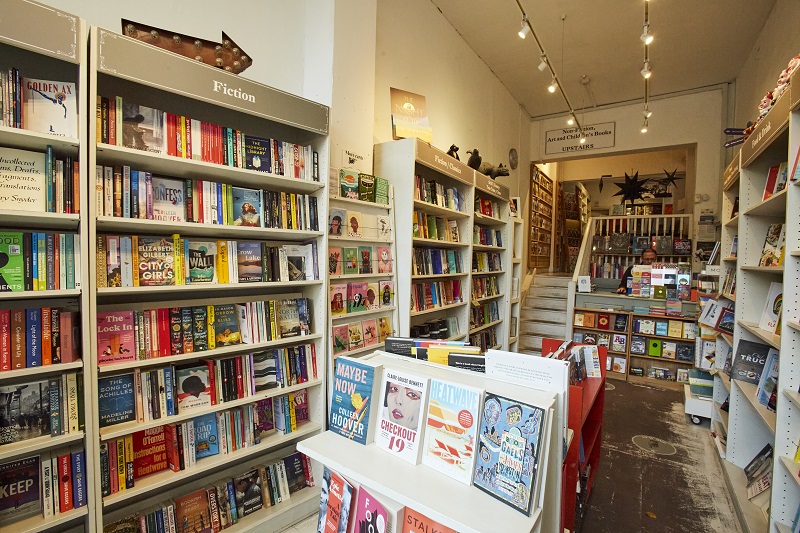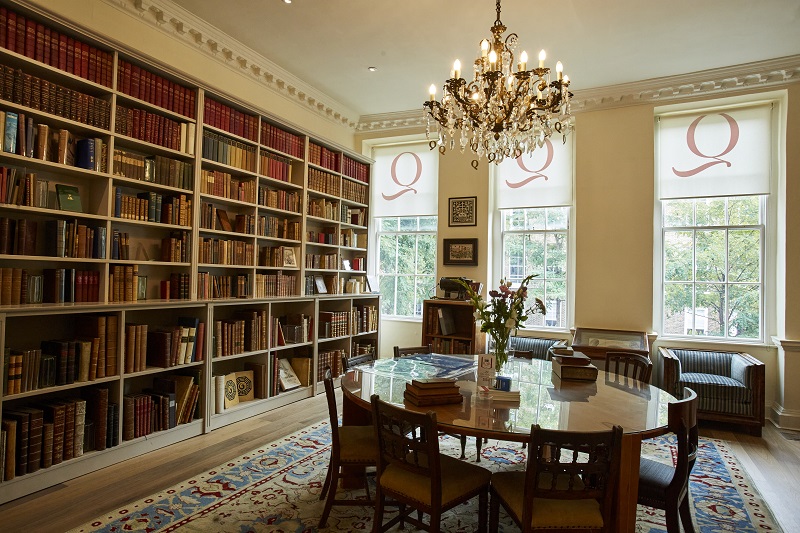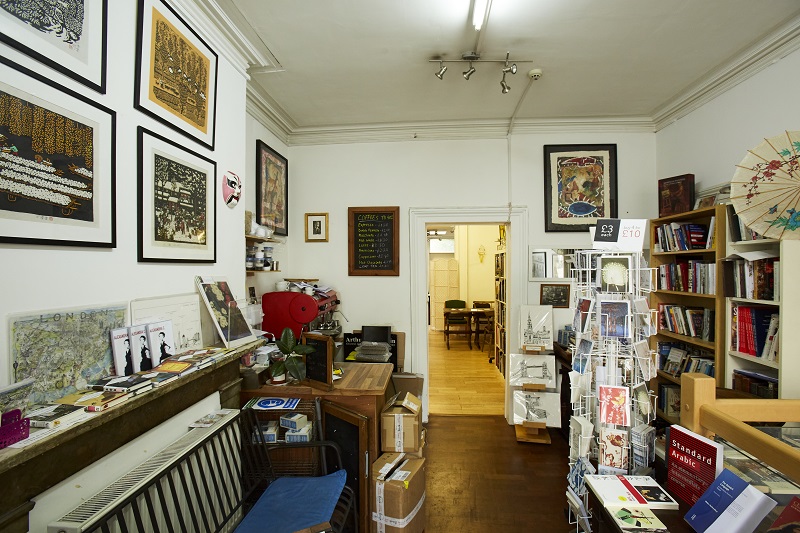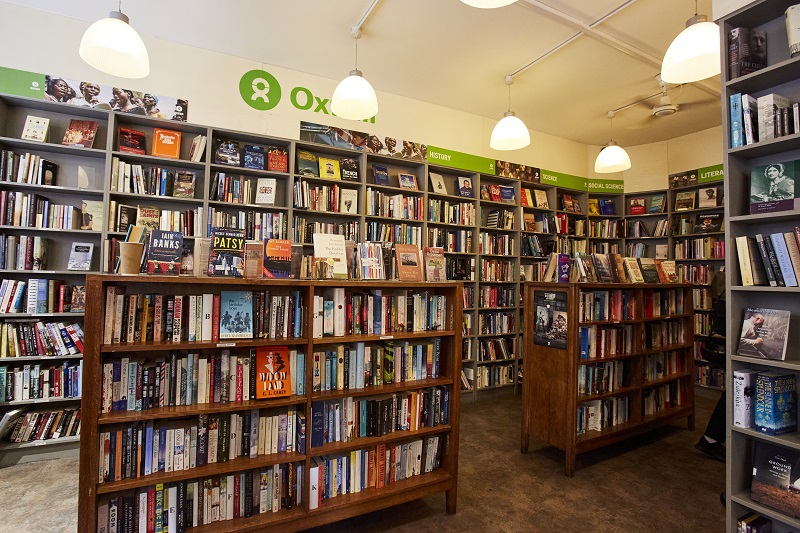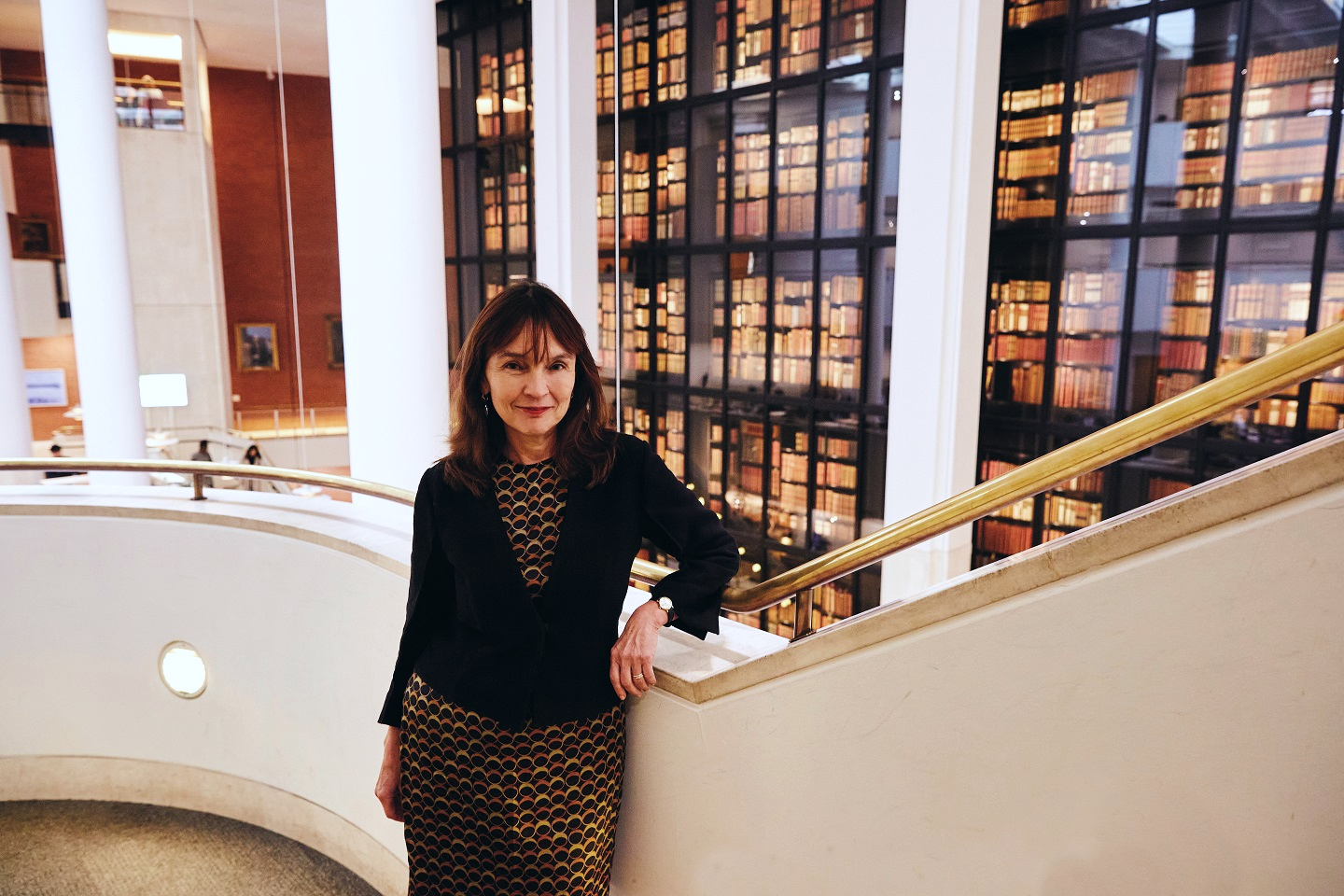
Datuk Dr Annabel Teh Gallop is the lead curator of Southeast Asia for the British Library (All photos: SooPhye)
A child needs a forest of words to wander through and a sea of imagination to splash in. A voracious reader since young, Datuk Dr Annabel Teh Gallop often finds herself lost in a place conjured up by the magic of language. When she is not thumbing through ancient manuscripts for work at the British Library, where she heads the Southeast Asia department, the fervent bibliophile lets fiction entice her on an adventure down the rabbit hole.
Gallop keeps several “book of books”, in which handwritten records of all the titles she has read are enumerated — one volume, dated between 1985 and 2019, logged an impressive 1,165 entries. Although they do not contain details of a character or summary of a story, they show how one gem led to another or prompted a total shift in interests and genres.
“For my anniversary present one year, my husband very kindly typed out these [titles] and sorted them alphabetically. I didn’t realise I went through the same thing twice! I love reading; it is part of my life. But because my profession requires me to study very difficult manuscripts in Jawi and Malay, I tend to gravitate towards fiction when I want to relax. It has to be good, though, as I’m quite fussy about what I give my precious time to.”
img_0448.jpg
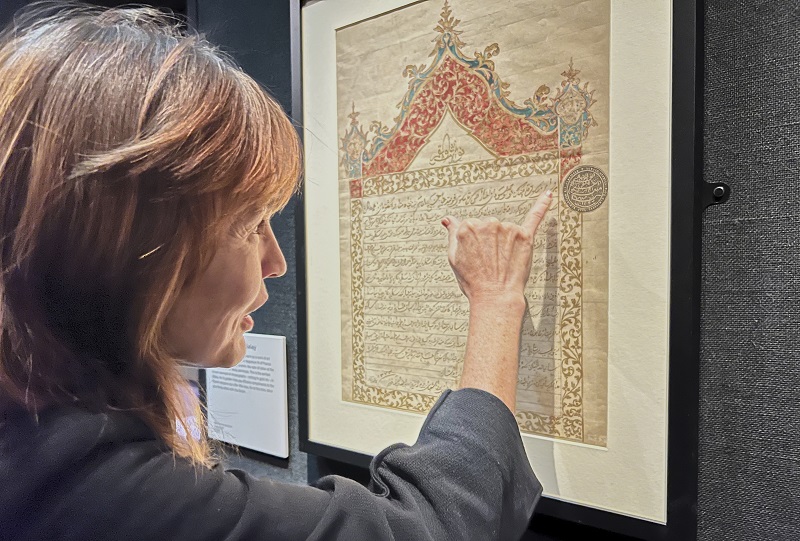
The universe of the written word connects us to a wider world and fills it with wonder. It can be counted on to take you to distant lands in another time or dimension.
Gallop has a penchant for matching the material to her travels, especially when duty calls. “Whether I am away for research or knowledge outreach in a different country, I try to fit my reading to a place. For example, I’ll choose a classic if I’m going to a historical location. Or, something non-western, like a Vietnamese novel, if I’m heading towards Asia.”
Gallop delights not only in books themselves, but also the serendipitous and meaningful nature of how she chances upon them. Here are some of her bookshop recommendations, whether you are seeking literary pearls or finding a cosy spot to curl up in.
CLAPHAM BOOKS
Clapham, a district in South West London, is known for many things. Present-day High Street is on the route of a Roman road, while Clapham Common, which comprises 220 acres of green space, is surrounded by three small lakes. But if you cross to the other side of the pond, literally, a boutique bookstore presents itself as an oasis of culture where one can forget about the daily grind for an hour or two.
It is here that Gallop, who lives about 100m from this local establishment, scours for indie titles usually not found on commercial platforms such as Amazon.
“This is a bit embarrassing to admit, but I tend to buy second-hand books. That’s not a very good way to keep the literary scene afloat because if you want to support writers, you should buy new ones. However, my husband and I enjoy going to Clapham because it’s our local bookshop, and there’s a lovely sense of browsing as well as just coming across something of interest. The store isn’t very huge but it’s curated, and I always order online through the owner if I want something specific. I often shop here for gifts too.”
26 The Pavement. More info here.
JUDD BOOKS
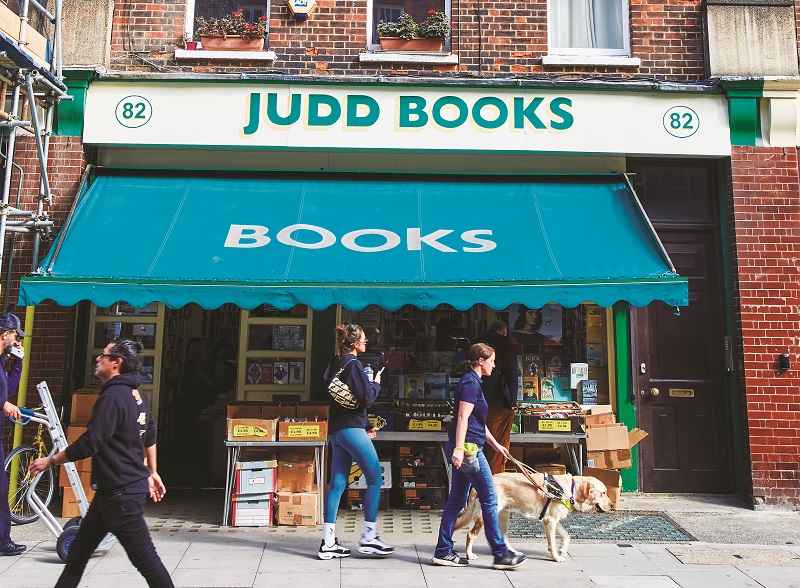
Trading for more than 25 years, this bookstore with a large stock of second-hand and bargain goods first started on Judd Street (hence its name) before opening another outlet on Marchmont Street. Its original location closed, however, and Judd continues to operate in the premises parked midway between Russell Square tube station and the British Library on Euston Road. Naturally, it became one of Gallop’s favourite literary haunts as she cycles past Judd every day on her way to work and the British Museum.
The ground floor is home to literature, art, design, architecture, film, media, music, theatre studies and fiction (we spotted Tash Aw’s The Harmony Silk Factory), while the basement peddles a considerable compendium of classical studies, economics, philosophy, science and psychology. Penny pinchers should plough through the boxes outside — the wonderful jumble of remainders and pre-loved wares is sometimes sold for as low as £2.
“I was shocked to see a British Library publication and copies of the Quran one time. I was like, ‘Hey, what are these doing here?”
82 Marchmont St. More info here.
BERNARD QUARITCH
Hailing from Germany, founder Bernard Quaritch — a merchant, scholar and bibliophilist — was widely known as the greatest bookseller of his day, but only a few know about the unremitting labour behind his success. With a modest capital, he set up shop in 1847 and soon assembled an impressive clientele, including Lucien Bonaparte (Napoleon’s nephew) and Edward FitzGerald, famous for his English translation of The Rubáiyát of Omar Khayyám.
In 50 years, Quaritch had built up the most extensive enterprise in antiquarian books in the world. Gallop notes that this Grand Old Man of London booksellers has many links to the British Library.
“Quaritch was known, above all, as a dealer in incunabula, fine manuscripts, periodicals and historical bindings. It moved several times, and has only been operating in the three-floor building at Bedford Row now for a couple of years. I’d say the curation is very targeted, and mostly for specialists. Its extensive archive constitutes a great importance to the book trade in Britain and throughout the world.”
36 Bedford Row. More info here.
ARTHUR PROBSTHAIN
One of the oldest Asian bookstores in the city after Bernard Quaritch, this family-owned shop has operated on Great Russell Street opposite the British Museum since 1905.
“Notable items in its collections used to include manuscripts and handwritten Quran but the store now focuses on academic books about Southeast Asia you cannot get anywhere else. The lower floor was converted into a café in 2011,” Gallop says. “We [the British Library] acquired 14 Malay and Arabic manuscripts from Arthur Probsthain in 2004, but had to be very careful about buying them as they need to be purchased legally, especially when we’re dealing with the movement of cultural properties.
“Come here for art and architectural books. But if you prefer something more academic, there’s another branch at SOAS University of London that caters for those with interests in Africa, anthropology, economics, ethnomusicology, languages, politics and religion.”
41 Great Russell St. More info here.
OXFAM
A favourite haunt to wind down when Gallop is not reading for work, Oxfam boasts wider genres, including recent novels, technical textbooks and out-of-print curios. This largest retailer of second-hand books in Europe has 750 charity shops around the UK, more than 100 of which are specialist or music stores. For example, the Marylebone store has a good selection of clothing and homeware as well as an exhaustive selection of good reads, while the Kensington High Street outlet specialises in vintage collectibles and receives regular visits from a qualified valuer.
“All items are donated directly by the public. But it’s definitely worth going to some of Oxfam’s specialist stores. I give all my novels to charity shops after reading them and usually pick up new ones at the same time!”
See all Oxfam outlets here.
Merdeka Award 2022 recipient Datuk Dr Annabel Teh Gallop also received an honorary doctorate from Universiti Malaysia Terengganu for her work on the Terengganu Quran manuscript last year. Read our interview with her on the Merdeka Award here.
This article first appeared in The Edge's London special issue on Oct 10, 2022.

